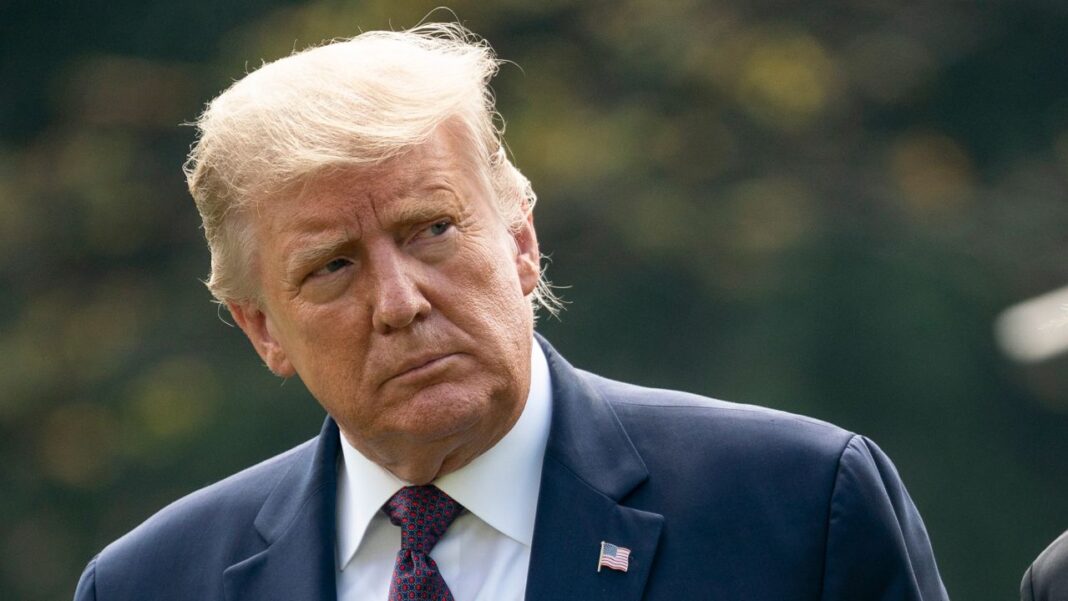By HeadlineNews.News Global Business & Politics Desk.
July 3, 2025 | Washington/Abuja
Fusion of Diplomacy or Distraction Tactics?
Former US President Donald Trump’s surprise invitation to leaders from Gabon, Guinea-Bissau, Liberia, Mauritania, and Senegal for a Washington investment summit on July 9–11 has drawn widespread attention — and raised questions about Nigeria’s absence from the list .

The summit, titled a “mini-African summit,” emphasizes trade and investment over traditional aid—an explicit pivot toward transactional diplomacy. Secretary of State Marco Rubio confirmed that envoys will now be evaluated on commercial deals.
Nigeria—the continent’s most populous and its largest economy—being excluded has sparked debates in Abuja and beyond.
Why Nigeria Wasn’t Invited
America First, America Only?
Trump’s “America First” doctrine appears to favor countries with smaller markets and fewer geopolitical complications, focusing on nimble, quick-win investments rather than larger ecosystems.
Timing vs. BRICS Summit
The invitation coincides with Nigeria’s President Bola Tinubu attending the BRICS Summit in Brazil, suggesting a potential diplomatic play to distract attention from BRICS-led engagements.
Commercial vs. Strategic Appeal
Washington’s choice may reflect concerns—or missed confidence—in Nigeria’s ease of doing business, regulatory climate, and market openness. Meanwhile, countries like Senegal and Gabon have positioned themselves as agile, investment-ready partners.
Nigeria Is Gaining Recognition on the Global Stage
Yet the global community views Nigeria differently:
- A nation of 200 million and climbing, generating $440 billion GDP, and producing entrepreneurs and professionals globally.
- Its diaspora is among the most educated and influential, adding to Nigeria’s soft power.

As one Nigerian envoy remarked off-record,
“Pulling the wool over the eyes of Nigeria’s leaders won’t work. We’re independent-minded and globally plugged-in. This exclusion creates more questions than answers.”
Will This Affect Nigeria–US Relations?
Despite today’s exclusion, Nigeria’s global appeal remains intact:
- Tinubu’s administration met with a US Senior Advisor for Africa in April in Paris to discuss strategic collaboration .
- Nigeria is simultaneously strengthening ties through BRICS, AfCFTA, EU Green Deal, and Middle East/North Africa partnerships.

Analyst Prof. Adewale Ibitoye observed:
“If the U.S. thinks it can sideline Nigeria, they underestimate us. We have diversified relationships and a rising global voice.”
Contextualizing US Engagement with Africa
Obama Administration (2014): Hosted a large US–Africa Leaders Summit in Washington, with over 50 African nations, generating $14 billion in business pledges.
Trump (First Term): Scaled down aid slowly—focus remained transactional.
Trump (Second Term): Appears to be moving further away from legacy aid models, replacing them with deal-driven diplomacy—excluding large economies like Nigeria for now .
Analysis: Who Benefits—and Who Loses
Short-Term: Smaller economies may gain US attention and investment, but larger African nations could view this as strategic snubbing.
Medium-Term: Exclusion may incentivize Nigeria to diversify global partnerships—leaning into BRICS, European investors, Chinese buyers, and regional trade deals.
Long-Term: The missed invitation could galvanize Nigerian leadership to improve competitiveness, regulatory transparency, and investment climate.

Conclusion: Nigeria Will Be Fine—Trump Agenda or Not
While Trump’s invitation opens doors for some, Nigeria’s exclusion is unlikely to slow the nation down. Tinubu is actively pursuing multi-polar global integration, backed by a leadership that’s independent-minded and focused on structural reforms.
If anything, this moment highlights the importance of:
- Economic diversification
- Regulatory reform
- Strategic autonomy in diplomacy
Nigeria will not wait for invitations to participate—it will create its own.

Notable Quotes
“Nigeria is not nodding at invitations; Nigeria is building partnerships.”
— Prof. Adewale Ibitoye, Global Economies Researcher
“Nigeria’s absence from Trump’s parley is not a setback—it is a reminder that our foreign policy must be guided by strategic autonomy, not selective invitations. True influence is not given, it is earned—and Nigeria is earning hers across BRICS, Africa, and the global South.”
— Dr. G. Fraser, MFR, Governance & International Relations Consultant
“This may be a diplomatic snub—but Nigeria’s global footprint is beyond anyone’s invitation list.”
— Amb. Musa Dikko, Former Nigerian Ambassador to the UN
© HeadlineNews.News 2025. All Rights Reserved.
By Samuel Smith, International Affairs Correspondent.




